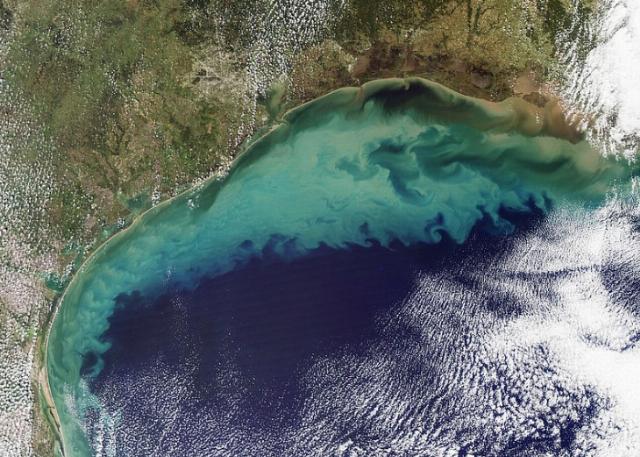The Gulf of America?
In the annals of history, names carry the weight of legacy, identity, and power. As we stand on the precipice of a new era under the leadership of President-Elect Donald Trump, it’s time we reconsider the nomenclature of our waters — specifically the expanse we currently refer to as the Gulf of Mexico. I propose we rename it the “Gulf of America,” not merely as a nod to historical correction, but as a bold statement of American identity and sovereignty in the 21st century.
The argument for this renaming is multifaceted, rooted in historical, geopolitical, strategic, and cultural considerations, all viewed through a conservative lens that champions national pride, sovereignty, and the reassertion of American exceptionalism.
It begins with history. The Gulf of Mexico was named during the era of Spanish exploration, a time when the New World was being carved up by European powers with little regard for the future geopolitical landscape. Today, the United States borders this gulf more than any other nation, with its economic heartbeat, from oil to shipping, pulsating through these waters. Why should a name that harkens back to colonial times persist when the United States, a nation that has fundamentally shaped the modern world, does not claim its own maritime domain?
From a geopolitical standpoint, renaming the Gulf serves as a declaration of American primacy in the region. This is not an act of imperialism, but a recognition of reality: the U.S. is the predominant power in North America. The Gulf’s waters are critical for American security, commerce, and energy, with over 40% of U.S. offshore petroleum coming from here. By renaming, we assert our stewardship and commitment to ensuring the security and prosperity of this vital artery, which is, in essence, more American than Mexican in its modern context.
The strategic value of the Gulf cannot be overstated. It’s a front line in the defense of American interests, from countering drug-trafficking to securing our energy resources. Naming it the Gulf of America is a strategic move, akin to how nations throughout history have named territories to underscore their control and influence. It sends a clear message to the world: the United States is not only a protector, but also a primary stakeholder in the Gulf’s future.
Culturally, this renaming is an opportunity to foster a deeper sense of national identity. Americans should see themselves not just as inheritors of European history, but as creators of a new, vibrant culture that defines the modern world. The Gulf of America would symbolize America’s role as a beacon of innovation, freedom, and economic might. It’s a chance to educate future generations about American history, not through the lens of European colonialism, but through the lens of American achievement and self-determination.
Here lies a unique viewpoint: the renaming could serve as a unifying symbol in a nation often divided. By calling it the Gulf of America, we create a geographical identity that transcends state boundaries, reminding all Americans of our shared national interest in this water body. It could become a rallying point for national cohesion, much like the American flag, where every American, regardless of political persuasion, can take pride in our maritime heritage and collective stewardship.
Critics might argue that this move smacks of cultural insensitivity or historical revisionism. To them, I say this: renaming does not erase history, but rather re-contextualizes it for today’s realities. We are not denying the Spanish heritage; we are acknowledging that history has moved forward. Mexico remains our valued partner, and cultural exchanges can continue to thrive without being anchored to a name from centuries past.
Moreover, this proposal can be seen as a catalyst for dialogue about how we name and claim spaces in a world where borders are both physical and cultural. It prompts a discussion on how nations can respect one another’s histories while asserting their own identities.
Economically, this change could stimulate a rebranding of industries around the Gulf, from tourism to energy. Imagine “Gulf of America Shrimp” or “Gulf of America Oil” — brands that resonate with national pride. This could lead to a boost in local economies by creating a new identity that’s marketable on a global stage, showcasing American ingenuity and resourcefulness.
From an international law perspective, although the U.S. can change its domestic usage, we must approach this with diplomatic finesse. Engaging with Mexico and other stakeholders in a dialogue about the shared history and future of the Gulf can ensure that this move strengthens, rather than strains, international relations. It’s an opportunity for a new agreement that respects both nations’ interests in the region.
In conclusion, renaming the Gulf of Mexico to the Gulf of America is not just about a name; it’s about reasserting American identity, sovereignty, and strategic interests in a way that aligns with conservative values of national pride and historical rectification. This isn’t about erasing history, but about writing a new chapter where America proudly claims its place on the global map. This proposal, if executed with the respect and diplomacy it deserves, can serve as a beacon of American unity, innovation, and leadership in the modern world. Let’s make this change — not out of arrogance, but from a place of confidence in our nation’s role and contributions to the world stage.
Let’s call it the Gulf of America. In many ways, it already is.






